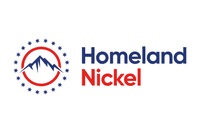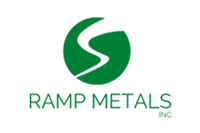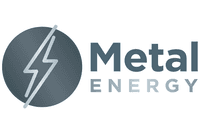Roskill: Partial Demand Recovery to Support Nickel Prices in H2
During H1, mining and refining facilities for nickel were disrupted at a global scale as a result of COVID-19 containment measures.
It’s been more than four months since COVID-19 was declared a pandemic, and the impact of the virus on the commodities space is far from over.
Nickel is just one metal still facing hurdles, despite the rebound in prices it saw in Q2. During the first half of 2020, mining and refining facilities for nickel were disrupted at a global scale, from the Philippines to Canada, as a result of coronavirus containment measures.
“We expect primary refined nickel supply to decline by a little more than 1 percent year-on-year in 2020 because of the disruptions,” Roskill Senior Analyst Jack Anderson told the Investing News Network. “However, Indonesian nickel pig iron (NPI) production has soared through early 2020, which has helped to make up for falls in refined nickel supply elsewhere.”
For Anderson, nickel demand has been more severely impacted as the virus eventually forced governments across the world to impose measures aimed at slowing the spread of the disease.
“Those measures, however, also resulted in a sharp slowdown in economic activity, which is expected to lead to a sharp deceleration in primary nickel demand,” he said.
Averaging US$12,440 per tonne during the first half of 2020, nickel’s price performance was marginally lower than what Roskill had expected at the start of the year.
“Low demand has resulted in the market switching to surplus and a swelling of stocks,” Anderson explained. “We anticipate the price to improve a little through H2 2020, supported by a partial demand recovery, especially in China.”
Commenting on what could happen to supply in the coming months, he said risk exists this year in terms of whether Indonesian NPI supply could be disrupted by a COVID-19 outbreak in Sulawesi, the region where these companies operate.
“These regions have, so far, remained unimpacted by COVID-19. This is possibly a function of their remote location and stringent company policies, aimed at minimizing the risk of an outbreak,” he said. Indonesia has become a key supplier of refined nickel in the form of NPI used as a stainless steel feed.
Moving forward, risk also comes from how much NPI supply will be put into operation.
“This is because of the speed at which additional NPI projects become operational after being announced,” Anderson said. “NPI projects can be announced and operational within a couple of years, so that additional supply could be added on top of an oversupplied (post-COVID-19) market.”
Looking at the other side of the equation, nickel demand is picking up, especially in China. While the country was the first to be affected by the COVID-19 pandemic, it was also the first to begin to lift lockdown measures, Anderson said.
“Elsewhere, demand is expected to start recovering as lockdown measures begin to be lifted,” he added. “This should result in a gradual improvement in demand, albeit from a low base.”
According to Roskill, stainless steel will continue to dominate the demand side of the nickel market throughout the decade.
Significantly for nickel, the firm forecasts that the lithium-ion batteries that power electric vehicles (EVs) will utilize increasingly nickel-rich cathode chemistries (NCM622, NCM712 and NCM811).
“By 2030, we forecast nickel demand from the batteries sector to account for a little over 25 percent of the total nickel market,” Anderson said. “These nickel-rich cathodes will also be joined by non-nickel-containing cathodes such as lithium iron phosphate, which is favored in the Chinese market for its lower cost and safety record in powering EVs.”
Despite the economic weakening due to the COVID-19 pandemic, Europe and China have strengthened their EV subsidy programs and maintained their CO2 and EV targets, which Roskill believes will continue to support EV adoption and therefore nickel demand from the battery space.
As the second half of the year begins, the world continues to be challenged by the uncertainty from COVID-19, with commodities being no exception.
“For nickel, we are waiting to see whether the Indonesian NPI producers are impacted by any outbreaks in the locations they operate,” Anderson said. “This is significant because it supplies NPI to Chinese stainless steel mills as well as integrated domestic operations.”
He also pointed to several battery-grade nickel intermediate projects under construction in Indonesia.
“The timely development of these projects to produce battery-grade nickel to feed the lithium-ion battery market could be under threat,” the expert said. “Roskill believes that battery-grade nickel intermediates are the pinch point in the EV battery supply chain.”
Don’t forget to follow us @INN_Resource for real-time updates!
Securities Disclosure: I, Priscila Barrera, hold no direct investment interest in any company mentioned in this article.
Editorial Disclosure: The Investing News Network does not guarantee the accuracy or thoroughness of the information reported in the interviews it conducts. The opinions expressed in these interviews do not reflect the opinions of the Investing News Network and do not constitute investment advice. All readers are encouraged to perform their own due diligence.


